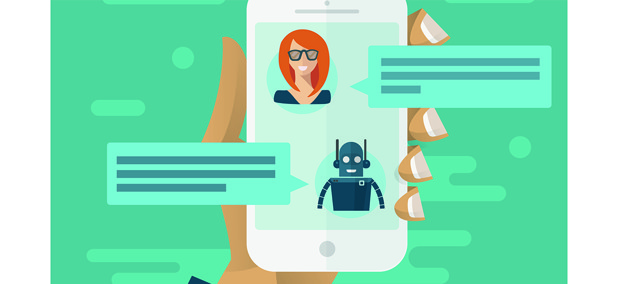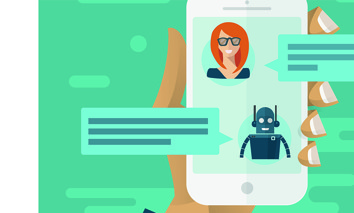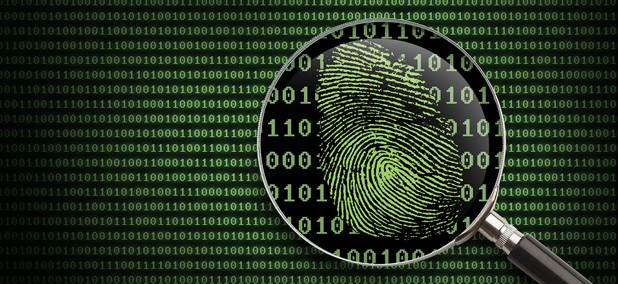Author Archive
Kaveh Waddell

Kaveh Waddell is an associate editor at The Atlantic.
Digital Government
Can Cops Force You to Unlock Your Phone With Your Face?
Apple’s new Face ID technology raises questions about constitutional protections for personal devices.
- By Kaveh Waddell, The Atlantic
Emerging Tech
The Internet of Things Needs a Code of Ethics
Technology is evolving faster than the legal and moral frameworks needed to manage it.
- By Kaveh Waddell, The Atlantic
Cybersecurity
Hackers Get Back to the Basics
As the costs of complex cyberattacks increase, old-school email tricks are coming back in style.
- By Kaveh Waddell, The Atlantic
Cybersecurity
A Trick That Hides Censored Websites Inside Cat Videos
The technique uses popular sites as camouflage for banned ones.
- By Kaveh Waddell, The Atlantic
Artificial Intelligence
Chatbots Have Entered the Uncanny Valley
When virtual assistants almost pass as human, they only seem more robotic.
- By Kaveh Waddell, The Atlantic
Digital Government
The Dark Side of Slack’s New Emoji Statuses
The cutesy feature could pressure employees into sharing their every move—both on and off the clock.
- By Kaveh Waddell, The Atlantic
Digital Government
The Steady Rise of Digital Border Searches
At the current rate, customs agents are on track to increase inspections of travelers’ electronic devices by a third this year.
- By Kaveh Waddell, The Atlantic
Digital Government
An Algorithm That Hides Your Online Tracks With Random Footsteps
Can “polluting” browsing history with fake traffic make it harder for ISPs to spy on you?
- By Kaveh Waddell, The Atlantic
Modernization
When Apps Secretly Team Up to Steal Your Data
An analysis of the top 100,000 Android apps found tens of thousands of pairings that leak sensitive data.
- By Kaveh Waddell, The Atlantic
Cybersecurity
CSI: Walmart
Some of the best digital-forensics labs don't belong to the police—they're run by banks, tech companies, and retailers.
- By Kaveh Waddell, The Atlantic
Cybersecurity
Encryption Won’t Stop Your Internet Provider From Spying on You
Data patterns alone can be enough to give away what video you’re watching on YouTube.
- By Kaveh Waddell, The Atlantic
Featured eBooks
Cybersecurity
Is Trump Still Tweeting From His Unsecured Android Phone?
If so, he’s extremely vulnerable to being hacked.
- By Kaveh Waddell, The Atlantic
Digital Government
How the Rise of Electronics Has Made Smuggling Bombs Easier
New restrictions on flights from the Middle East reflect how just about anything with power can be turned into an explosive.
- By Kaveh Waddell, The Atlantic
Cybersecurity
Hacking Tools Get Peer Reviewed, Too
A government-led effort paves the way for data extracted from electronic devices to be accepted as evidence in court.
- By Kaveh Waddell, The Atlantic
Digital Government
What Happens If a Nuclear Bomb Goes Off in Manhattan?
A computer model is in the works to simulate how New Yorkers would respond in the the first 30 days after a nuclear attack.
- By Kaveh Waddell, The Atlantic
Modernization
Your Hot Hands Can Give Away Your Smartphone PIN
Thermal images reveal what parts of the screen were tapped, even after it’s left untouched for 30 seconds.
- By Kaveh Waddell, The Atlantic
Digital Government
The Cyberwar Information Gap
Unlike a conventional military strike, state-on-state cyberattacks can go unreported for years.
- By Kaveh Waddell, The Atlantic
Digital Government
Is It Wise to Foil North Korea’s Nuclear Tests With Cyberattacks?
“This could set off very serious alarm bells in Beijing and Moscow.”
- By Kaveh Waddell, The Atlantic
Digital Government
The Government’s Secret Wiki for Intelligence
Analysts reportedly tucked classified information about Russian hacking inside Intellipedia for safekeeping.
- By Kaveh Waddell, The Atlantic
Digital Government
The Invisible Fence That Keeps Drones Away From the President
Some drones are programmed to avoid restricted airspace—but it’s not hard to ignore the limits and fly there anyway.
- By Kaveh Waddell, The Atlantic





























